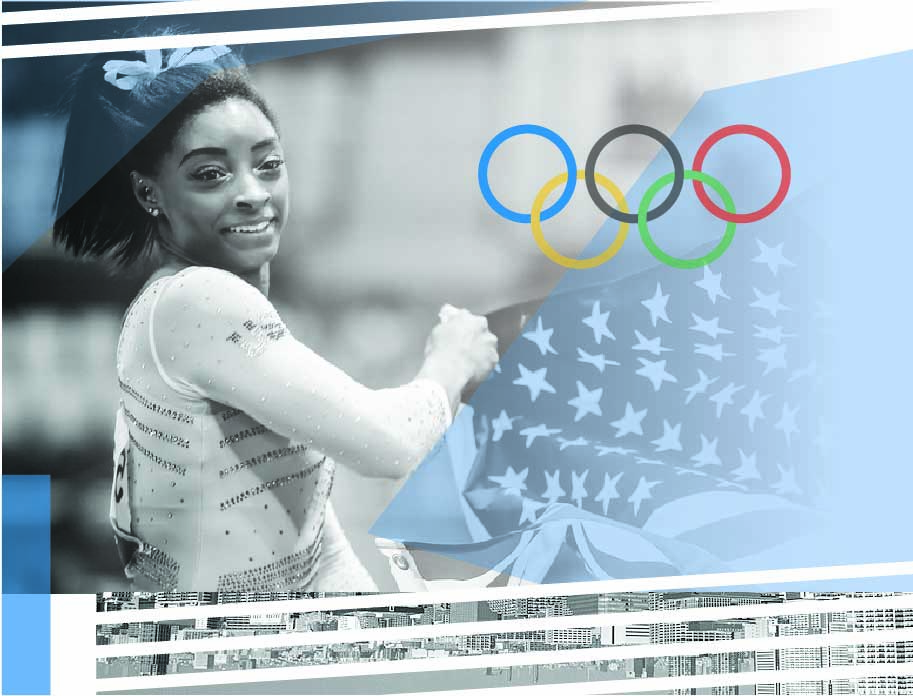
Prof Toby Miller
Stuart Hall professor de estudios culturales at the Universidad Autónoma Metropolitana and author/co-author of A COVID Charter, a Better World, Greenwashing Sport, SportSex, and Globalization and Sport, inter alia. He formerly edited the Journal of Sport & Social Issues.
Website: Toby Miller

Section 1: Tokyo & Mega-Events
- Public relations as the key in the 2020 Tokyo Olympic and Paralympic Games
- Tokyo 2020, East Asian geopolitics and Olympic diplomacy
- Anti-sex beds? Fake news! : why this video went massively viral?
- Power sharing: Olympic sponsorship and the athlete’s personal brand
- The Tokyo 2020 Organizing Committee’s veil of effective public relations to help save itself and the start of the Games
- Host city and mega-events: Olympic legacy in Japan
- The rise of critical consciousness in Japan: An intangible and unintended legacy of the Tokyo 2020 Olympic Games
- The soft power of the Olympics in the age of Covid 19
- Tokyo 2020 Olympic Games, nationalism, identity and soft power
- Environmental leadership showcased in the Olympic Games
- Simone Biles and prioritizing athlete well-being
- How the female athletes of the Tokyo Olympics are reframing the way we think about motherhood
- Deliver a medal or apologize: A daunting task imposed on Japanese Olympians
- What happened to Rule 40 at Tokyo 2020?
- Cultural programming at Tokyo 2020: the impossible Olympic festival city?
- A green Olympic legacy for future generations?
- Lessons from Tokyo: the impact of the Paralympics in Japan
- Let’s play! Inspiring an inclusive mindset with a hands-on Paralympic experience for children and teenagers in Japan.
- The Olympic & Paralympic sponsorship without category exclusivity: Background of sponsorship exclusivity in Olympic and Paralympic Games (OPG)
- Counting cases, counting medals: Containing the Olympic contagion during the Tokyo Games
- The Olympic Games and ambush marketing via social media
- Pride and burden of striving for perfection at the Olympics
The Olympics are constitutively environmental: their very division between summer and winter contests is climatic. And within six decades, few world cities will be cool enough to host the event safely, due to climate change.
So the natural world should be front and center. But many sports avoid or alter geography. Pool swimmers and divers are sedulously sheltered from salt and river water and basketballers securely shielded from weather. Skateboarders and bicycle-motocross riders rely on the evisceration of anything natural in their path. Our fellow-animals are largely absent, other than the enslaved horses of equestrianism and the pentathlon (one that stepped out of line in the Tokyo Olympiad was slapped into submission) skeet shooting’s mimetic birds—and occasional mascots (pace Théâtre Sans Frontières and 動物オリムピック大会).
And the Olympics’ environmental history is dubious. The record of Tokyo’s previous Games incarnates despoliation. As with all rapid, massive modernizations (the United States, Soviet Union, and People’s Republic of China), Japan’s transformation was achieved through violence; in this case, war and its detritus. 1964’s flashy welcome to Tokyo modernity featured a façade of newness, technology, and efficiency; how not to fall prey to Marxism-Leninism when emerging from fascism.
But prior to those Games, construction of a high-speed rail link between Osaka and the capital saw canals, sea, and rivers inundated with concrete and landfill and a centuries-old seaweed field destroyed. Water stagnated, sludge emerged, and marine life perished. Estuaries turned into cesspools and/or became roads. The tramway system was virtually destroyed in favor of freeways, and sadistic clearances saw hundreds of thousands of homeless cats and dogs killed by the state.
2020 was meant to be different: a putatively green Olympics. Five thousand medals were constructed from electronic waste—discarded cellphones et al. The IOC (International Oligarchy Committee) signed up to that great capitalist oxymoron of our times, the UN’s Sustainable Development Goals. Adopting the slogan “Be better, together, for the planet and the people,” it guaranteed a Games characterized by mass transit, renewable energy, and recycled rainwater.
The Committee makes outlandish claims of environmental leadership. But the massive misallocation of public and private resources that embodies the Olympics is predicated on two myths: promises of re-useable new infrastructure and ongoing tourism have seduced city after exploited city. Meanwhile, the use of raw materials and accumulation of airmiles compromise any supposed accommodation to our climate crisis. Officials estimated 2.73 million tons of carbon dioxide would be emitted courtesy of the 2020 Games—more than many countries produce in a year, though banning foreign spectators diminished that figure.
Tokyo 2020 saw public parks and housing razed and iconic landmarks ruined; the organizers pillaging rainforests to build their stadium; and Fukushima re-imagined for local and international propaganda: don’t fear radiation—come home, or visit for the first time—it’s safer than smoking (a propos, 1964 featured an Olympic cigarette, leading to massive increases in Japanese smoking and lung cancer)!
Then there is the question of timing. A thousand fatalities during the 2018 Japanese summer were declared, “The First Undeniable Climate Change Deaths.” In 2019, the Games period saw Tokyo’s daily maximum temperature average 92°, with 80% humidity. 20,000 people were hospitalized nationwide.
The 1964 Olympics were in October. But a repeat of such a calendar was unacceptable to NBC. Ever since poor ratings for the September 2000 Sydney Games, NBC gets what NBC buys: 7.75 billion dollars’ worth of influence, if not intellect, competence, or artistry.
On August 4 2021, host broadcaster NHK’s meteorologist Sayaka Mori noted that the weather was “really torturing the Olympians and volunteers.” The athletes’ own testimony was equally damning. Needless to say, NBC covered the 2021 “heat wave” and typhoon as “another hit of nature’s power.” For its part, the International Oligarchy Committee put responsibility onto participants for their health, as if the impact on different sports and identities were not the IOC’s doing. Nor did it discipline the many federations that had done next to nothing to care for competitors.
Then there was COVID-19, which hung over these Games like a shroud of death, the latest in a long line of diseases imperiling human life as a consequence of the meat and fashion industries attacking the environment: of the fifteen hundred known human pathogens, two-thirds pass to us from other animals, courtesy of carnivorous capital.
In short, Tokyo 2020’s vacant hotels and spectator-free stadia stood as witless, mute, plastic testimony to the effect of COVID-19 on IOC greenwashing, while the anachronistic invocation of a year that had already passed to describe the Olympics celebrated a pomp and arrogance so thoroughly articulated to marketing that it overdetermined the simplest chronological truth.
NBC hegemons complained that a “drumbeat of negativity” dragged down its ratings. But those numbers, and the event’s physical emptiness, enshrined a void at the core of the movement’s very being, while spurious claims to greenness indexed an avoidable pandemic.

